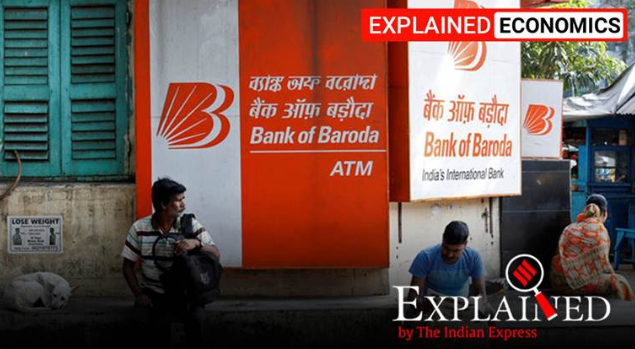PSU bank employees salary: The wage hike will benefit employees of old generation private banks and some foreign banks as the agreement has been signed by 11 state-owned banks, 12 private sector banks and seven foreign banks.
Close to 8.5 lakh bank employees are set to get a 15 per cent increase in their salary packages with the Indian Banks’ Association (IBA) – the apex body of banks — and the United Forum of Bank Unions (UBFU) signing a Memorandum of understanding to settle the three-year-long contentious issue of wage revision.
The bank managements and unions have also agreed to introduce the system of performance-linked Incentive (PLI) in public sector banks for the first time. The wage revision will be effective from November 1, 2017. A performance-linked incentive scheme is also being introduced to encourage employees in a competitive scenario.
It will benefit employees of old generation private banks and some foreign banks as the agreement has been signed by 11 state-owned banks, 12 private sector banks and seven foreign banks. New generation private banks like HDFC Bank and ICICI Bank are not part of this.
How much will it cost the banks?
The annual wage increase in salary and allowance is agreed at 15 per cent of the wage bill as on March 31, 2017. This works out to Rs 7,898 crore on pay slip components, according to the MoU signed by the IBA and unions. In the previous wage settlement, which was for the period November 1, 2012, to October 31, 2017, the employees got a similar 15 per cent hike. United Forum of Bank Unions had initially demanded a 20 per cent wage hike. The IBA refused to entertain this demand and insisted that it would be 10 per cent at best, refusing even the 15 per cent that the unions had asked for in the earlier round of talks. IBA finally agreed for the 15 per cent hike after protracted talks. Distribution of annual wage increase between workmen and officers will be worked separately and proportionately based on breakup of establishment expenses as on March 31, 2017.
Also Read: Golden opportunity for home buyers, banks cheaper home loan
How will it impact banks?
The wage hike has come at a time when most PSU banks had reported heavy losses in the last several quarters. Moreover, losses and non-performing assets (NPAs) are expected to rise when the loan moratorium announced by the RBI to tackle the impact of Covid-19 pandemic is lifted in August. However, industry sources said the hike should not be seen in the context of Covid-19, which is expected to hit the banks’ profits in the medium term. The negotiations for wage hike have been going on for nearly three years. “The hike won’t be a burden on banks as it was expected and made provisions accordingly,” said a banking source.
What is Performance Linked Incentive that has been introduced?
After prolonged discussions and deliberations, both sides agreed to introduce the performance linked Incentive (PLI) in public sector banks which will be based on the operating profit/ net profit of the individual bank. This will be optional for private and foreign banks. “The PLI is payable to all employees annually over and above the normal salary payable. The PLI matrix decides the amount payable to the employees depending on the annual performance of the bank,” the MoU says.
As per the formula, if the year-on-year growth in operating profit is less than 5 per cent, there’s no incentive. If the Y-o-Y growth is between 5-10 per cent, five days salary will be given as incentive. If the growth is between 10-15 per cent, 10 days salary will be the incentive and in the case of 15 per cent plus growth, 15 days salary will be given.
Also Read: Pravasi Bharatiya Bima Yojana: Government is providing this facility to Indians working abroad
“In today’s banking scenario, there’s stiff competition among different categories of banks – public sector, private sector and foreign banks. In order to inculcate a sense of competition and also to reward the performance, the concept of Performance Linked Pay is felt to be introduced,” the MoU says.
While PLI has been introduced to motivate employees, it may be difficult in reality since banks are expected to post losses in coming quarters, banking industry sources said.


